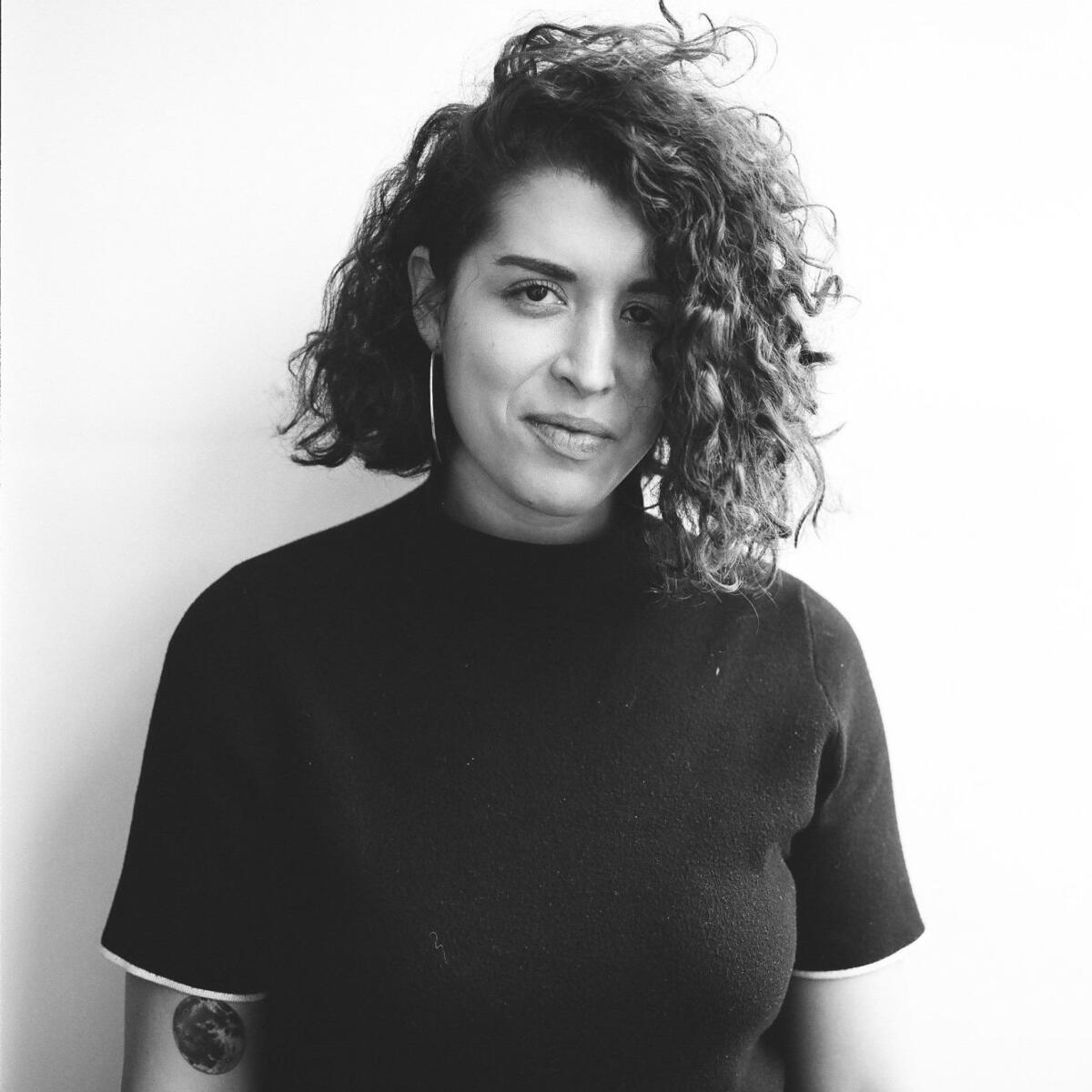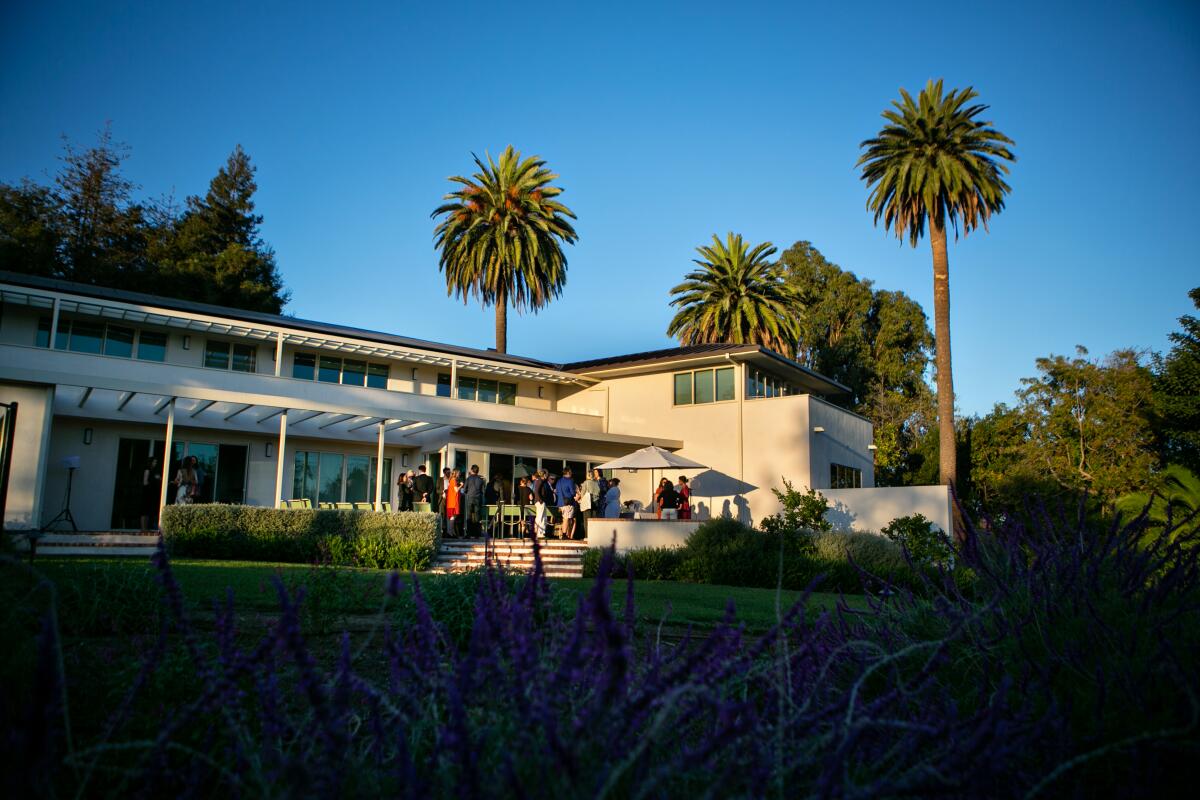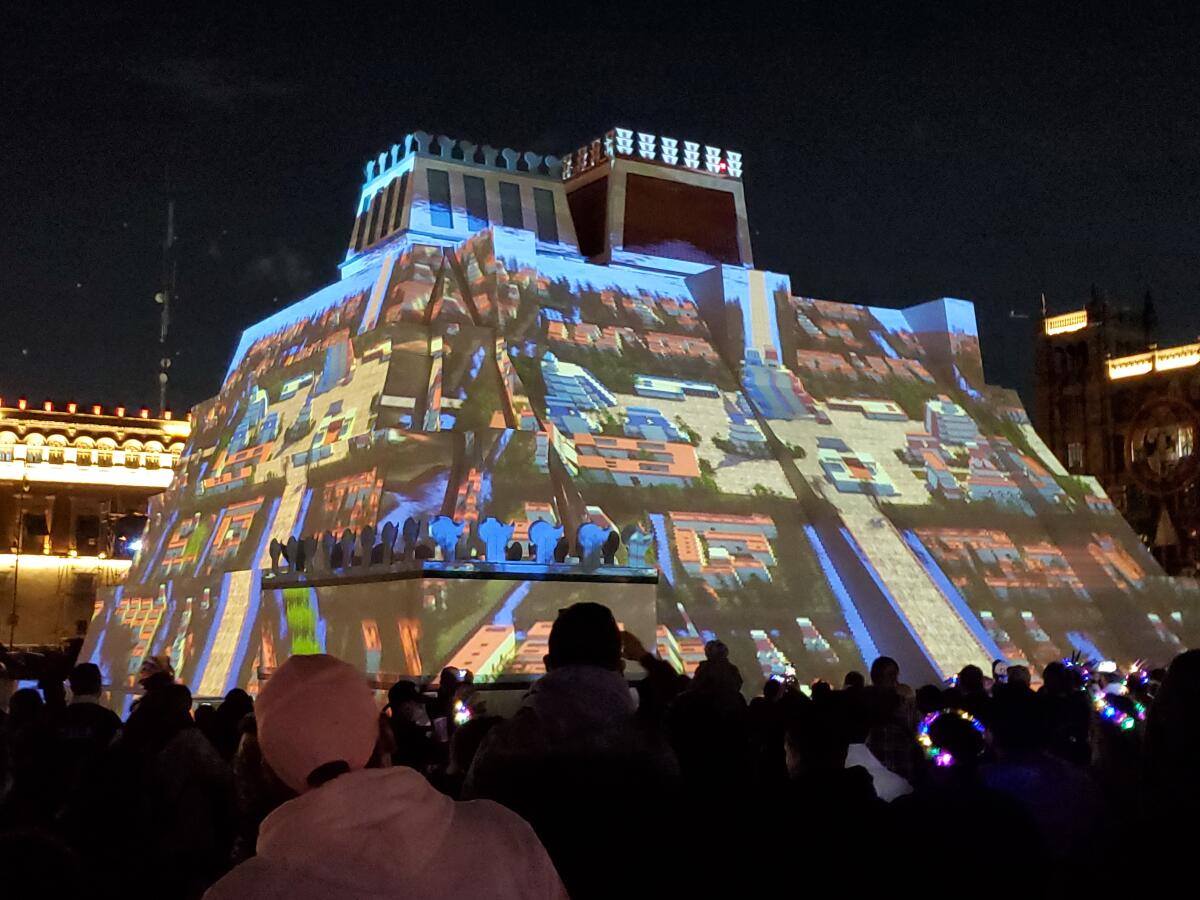Newsletter: Hello from The Times’ new arts editor, Paula Mejía

Welcome to Essential Arts! I’m Paula Mejía, the new arts editor at the L.A. Times, and I’ll be filling in for Carolina A. Miranda this week.
Introductions
While I wait for my worldly possessions to arrive from my home state of Texas, I’ve been using a stack of books about Los Angeles (I’m rereading Mike Davis’ essential “City of Quartz” — what’s your favorite?) as a makeshift nightstand and am writing this newsletter while using two pillows in lieu of a desk. I’m humbled to be leading our coverage of arts from one of the world’s most vibrant and idiosyncratic cultural epicenters, a city that I’ve adored since I first set foot in it a decade ago.
Make the most of L.A.
Get our guide to events and happenings in the SoCal arts scene. In your inbox once a week.
You may occasionally receive promotional content from the Los Angeles Times.
Several friends, born and raised Angelenos, have graciously shown me a few favorite Los Angeles icons over the years — including Barnsdall Art Park, Clifton’s Cafeteria, Stahl House, Grand Central Market and the late Smog Cutter— each of which moved me in distinct ways. Griffith Observatory became one of the first places I gravitated toward on my own, though. Every time I visited Los Angeles, it became a ritual to grab a chocolate peanut butter shake from Fred 62 before snaking my way up the hill to enjoy a meditative moment to myself. As many times as I’ve been to the observatory at sundown, standing up there and peering at the glittering expanse still feels like a miracle. Before retiring from The Times last year, columnist Chris Erskine described the glorious view this way: “You can sniff the sage in the canyons. You can watch the glossy half-smile of Santa Monica Bay. And the lights of the city, the glowing embers of another long SoCal day, not so different from the loaded sky.” I continue to be gobsmacked by this place that, much like my hometown of Houston, often appears sprawling and inscrutable at first blush.
What draws me to the Los Angeles Times at this moment, and to the role of arts editor, is a sense of urgency. It’s a bustling time for the arts world in Southern California, as actors, dancers and musicians are cautiously taking stages once again at the likes of Walt Disney Concert Hall. Major and burgeoning institutions alike, such as the new Academy Museum of Motion Pictures, are swinging open their doors.
There’s a lot to be excited about, and much to be skeptical of too. In the wake of racial reckonings that came to a head in the summer of 2020, and crucial conversations about harassment and discrimination as they manifest within museum galleries and concert halls, are performing and visual arts institutions actively supporting and reflecting their communities? How does art distill conversations and ruptures within our culture, and how can artists be empowered to continue carving out new avenues of expression? As we make our way back to experiencing the arts beyond our screens once more, I hope you’ll come back to our reporters and critics as a resource, share your experiences, and tell us what you’d like to see more of in the section.
A bit about me: Before coming to The Times, I oversaw coverage of the arts — in addition to film, music, TV, sports and religion — as Texas Monthly’s culture editor. Under my stewardship, we ran stories as varied as an oral history of Houston’s resident avant-garde-performance-art-meets-funhouse, notsuoH, and an extensive editorial package celebrating Selena Quintanilla Pérez’s impact on fashion, music and culture on what would have been her 50th birthday. As a writer, I’ve unpacked the gnarled story of a formative creative writing mentor of mine whose life story was revealed to be a work of fiction; broken news about the high-rise development creeping into James Turrell’s Skyspace at MoMA PS1 and how Angelo Badalamenti’s score for the cult TV show “Twin Peaks” looked exactly like — you guessed it — two mountain peaks; delved into why online sellers, such as Etsy, are upselling tumbleweeds plucked from the desert; and traced the enduring appeal of Southern California’s mall-goth behemoth, Hot Topic. I’m thrilled to be here with you!
Now I’ll hand things over to Craig Nakano, deputy editor of The Times’ Entertainment and Arts teams, who will go over the week in culture news.
Allegro
How quickly has SoCal’s classical music scene picked up its pace? Don’t bother looking to the stages; just look at our mailbox. So. Much. Happening. Yes, readers, critic Mark Swed has been a busy, busy man. No, we cannot clone him.
Swed’s calendar included the Igor Levit recital at the historic Thomas Mann House, the 1941 home of the “Death in Venice” and “Doctor Faustus” author and a gathering spot for literary luminaries of the era. Beyond hearing Levit make magic on Mann’s Wheelock piano — returned to L.A. after a 70-year absence — Swed captures the spirit of the house, imagining Arnold Schoenberg, Igor Stravinsky, Bruno Walter, Otto Klemperer, Arthur Rubinstein and Hanns Eisler gathering within the same walls. Bertolt Brecht and maybe Ernst Krenek and Darius Milhaud too. It’s a nice read with some lovely photos by Jason Armond.

That follows Swed’s review of the sold-out climate-change opera “Sun & Sea,” a devastatingly effective piece of environmental art co-presented by the Museum of Contemporary Art, Hammer Museum and Center for the Art of Performance at UCLA. Coming up: reviews of L.A. Opera’s “Tannhauser” and Steve Mackey’s new trumpet concerto premiering in Walt Disney Concert Hall. Publishing Monday: Swed’s interview with Gustavo Dudamel about pandemic loss and its effect on the sound of the L.A. Phil. As we said, busy busy.
Reporting from Mexico City
Daniel Hernandez has the step-back look at the replica of the Great Temple of the Aztecs that rose in the capital’s central square over the summer. Was the massive video light installation part of a decolonization movement that rightly exalts the country’s Indigenous roots, or was it an attempt to rewrite Mexican history?

Enjoying this newsletter? Consider subscribing to the Los Angeles Times
Your support helps us deliver the news that matters most. Become a subscriber.
A big sale, two great shows
Big week for local arts news too. UCLA announced that it was selling a marvelous 1930 Picasso painting in the Hammer Museum collection that’s expected to fetch $6 million to $8 million for the university at auction. He’s been highly critical of the recent museum stampede to deaccession artworks, so critic Christopher Knight may have surprised many readers with his verdict on the Hammer plan: smart move.
Knight also offers up a recommendation for your culture calendar: Photographer LaToya Ruby Frazier’s smart, effective show “The Last Cruze” at the California African American Museum. What makes the exhibition — about the closure of a GM plant in Lordstown, Ohio — so effective is “the sense of intimacy it’s careful to create,” Knight writes, and an empathetic understanding of the very human workers who were — past tense — on the assembly line.
At the downtown gallery Luis De Jesus Los Angeles, Carolina A. Miranda discovers the wondrous watercolors of artist Karla Diaz, whose 2017 stroke forced her not only to relearn how to draw but also to contend with insomnia. The late nights pushed Diaz to go deeper, the artist channeling into paintings a powerful exploration of life and death. Go.
Blackface and cancel culture
The fallout from a University of Michigan professor who showed the film adaptation of “Othello” with Laurence Olivier in blackface generated some not unexpectedly divided opinion. Theater critic Charles McNulty weighs in — and gets right to the point, opening his piece with: “Last spring I included in my Shakespeare on Stage and Screen syllabus the 1965 film of ‘Othello’ starring Laurence Olivier in blackface. You might be wondering why I’m freely acknowledging my academic crime.” For McNulty’s answer, click to read here.
Follow the money
The Ahmanson Foundation, once the largest donor of European Old Master paintings and sculptures to the Los Angeles County Museum of Art, announced it would fund art purchases at the Huntington Library, Art Museum, and Botanical Gardens in San Marino instead. Deborah Vankin has the story.
If you don’t know WriteGirl, Robey Theater, Santa Cecilia Orchestra or Tia Chucha’s Centro Cultural, check out Jessica Gelt’s piece on the organizations’ pandemic recovery. They’re among the 90 arts organizations receiving a collective $36.1 million windfall from the L.A. Arts Recovery Fund.
The Plaza Theatre, the downtown Palm Springs stage that hosted the likes of Bing Crosby and Bob Hope and later was home to “The Fabulous Palm Springs Follies,” got a preservation boost this week. “Frasier” co-creator David Lee pledged $5 million toward its restoration and renovation, Gelt reports.
Your essential calendar
If you’re last-minute looking for something to do this weekend, listings coordinator Matt Cooper has you covered, with suggestions that include an August Wilson revival in Pasadena, a Linda Ronstandt tribute with La Marisoul in Northridge, a Chiara Atik social-justice drama in Atwater, Kristin Chenoweth and Megan Hilty in Costa Mesa and Margaret Cho in La Mirada. But wait, there’s more.
Cooper’s list of 13 SoCal Halloween events, from trick-or-treating at L.A.’s Union Station to Zombie Joe’s 17-and-older “Urban Death Tour of Terror” (how’s that for range?), is here.
And there’s always our list of the newest L.A. and O.C. museum exhibitions to see in October.
Passing
Friends, associates and clients shared their memories of gallery owner and philanthropist Margo Leavin, who died at 85. If you missed Gelt’s expanded obituary, you can read it here.
And last but not least ...
One of the most frequent complaints we hear is that with so many articles flowing through The Times’ website each week, some readers have trouble finding the arts stuff. Some helpful (we hope!) shortcuts:
You always can find our latest arts stories at latimes.com/arts. And our topics pages are back! So you can bookmark for easy reference these dedicated pages to coverage of art, architecture, classical music, theater and dance, books and things to do.
The biggest entertainment stories
Get our big stories about Hollywood, film, television, music, arts, culture and more right in your inbox as soon as they publish.
You may occasionally receive promotional content from the Los Angeles Times.



